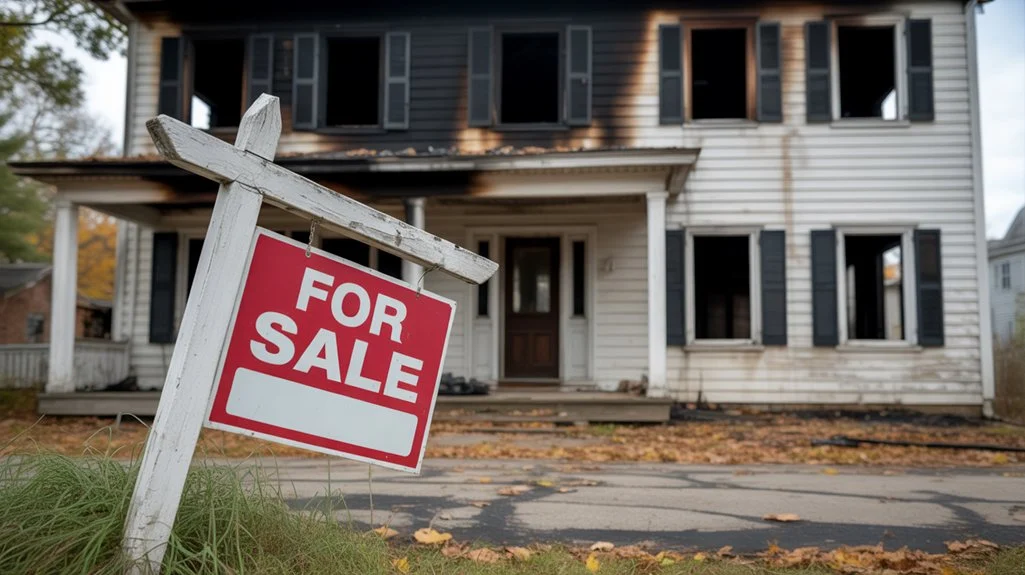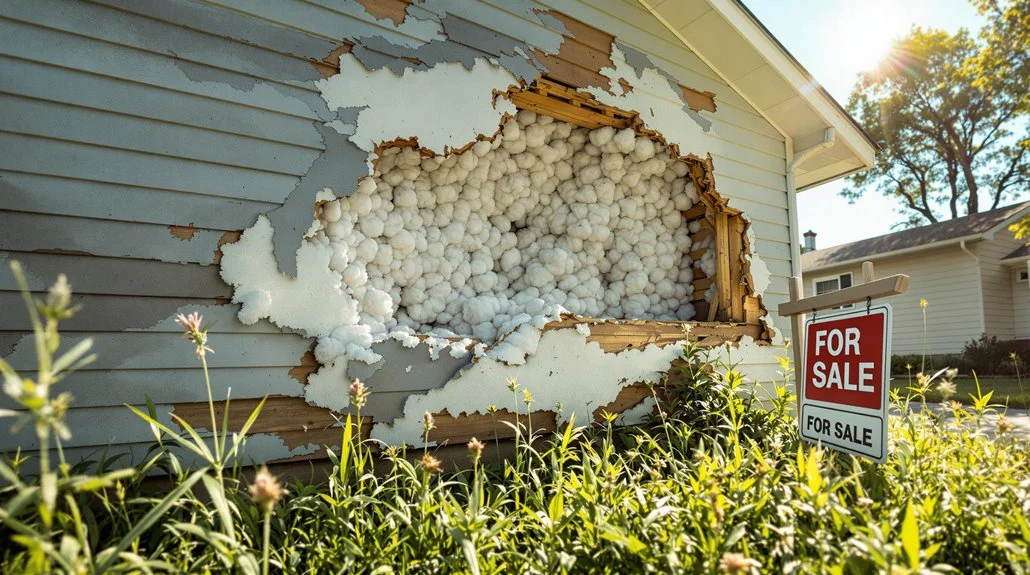"Selling a house with water damage can be tricky. It's important to understand the potential risks and liabilities involved when selling your home in this condition.
In this article, we'll discuss what you need to know about selling a house with water damage so that you can make sure everything goes smoothly for both yourself and any potential buyers.
Water damage is definitely an issue worth taking seriously if you're looking to sell your home. Knowing how it will affect the sale of your property is key to making sure things go as planned.
We'll look at the different types of water damage problems sellers may face, and offer some tips on how best to handle them.
With the right preparation, you can ensure that your sale goes through without issues – even if there are signs of water damage present!
Types Of Water Damage
Water damage can be a tricky business when selling a house. It's important to identify the type of water damage so that you can properly assess and address the issue.
There are three main types of water damage: clean, greywater, and blackwater.
Clean water is fairly harmless in most cases, coming from sources like air conditioners or broken pipes with no contamination present. This usually isn't too much trouble to fix up as long as it is addressed quickly before any mold growth develops.
Greywater is contaminated but not hazardous waste, such as dishwasher runoff, washing machine overflow, or toilet overflows without feces present.
Blackwater contains hazardous materials such as sewage backflows and should always be cleaned by professionals wearing proper safety equipment due to its potential health risks.
It's essential to correctly identify what kind of water damage your property has before attempting repairs yourself – otherwise you could put yourself at risk for further damages or even illness. If there's any doubt about the source or category of water damaging your home, get professional help right away!
Potential Risks And Liabilities
Selling a home with water damage can be a risky endeavor. If you're considering selling, it's important to understand the risks and liabilities that come along with the property. You need to know what could happen when you put your house on the market.
The most significant risk is that buyers may not want your home due to the damage caused by water. Even if they do agree to purchase, they'll likely offer far less than what you were hoping for.
It's also possible that more extensive repairs will have to be made before potential buyers are willing to consider an offer—which can significantly reduce profits from the sale of your house.
Finally, there are legal implications of selling a damaged home as well. Depending on where you live, there might be strict laws about disclosing information related to water damage in real estate transactions. This means buyers must know upfront about any issues with water so they're aware of exactly what they're getting into.
Penalties for failing to disclose this kind of information can include fines or even lawsuits against you after closing has been completed.
It pays off to make sure all aspects of selling your house with water damage are handled properly and legally, so everyone involved is protected throughout the process.
Preparing The House For Sale
Alright, so now that you know the potential risks and liabilities associated with selling a house with water damage, let's talk about how to prepare your home for sale.
First of all, it's important to get any repairs done right away. This means fixing any wall or ceiling damage due to moisture buildup and replacing any moldy parts like carpets or drywall. You'll also want to check out the plumbing system to make sure there are no leaks or other issues that need addressing.
Next up is making sure your home looks its best during showings. After getting the necessary repairs taken care of, this includes cleaning up any standing water in basements and removing items from affected areas that could cause further problems down the road. It may also be a good idea to hire a professional cleaner who can properly sanitize and deodorize any lingering musty smells caused by water intrusion.
Now when it comes time for open houses and walkthroughs, you'll want prospective buyers to feel confident in their investment decision – even if they're looking at a property with existing water damage issues.
So make sure signage is present where needed alerting them of what has already been repaired as well as providing information on any warranties included for future repair work if needed. Doing these things will help instill confidence in potential buyers while allowing them peace-of-mind knowing they won't be inheriting an unknown problem after closing.
Dealing With Insurance Companies
Selling a house with water damage can be tricky. But if you have insurance, it might not be so bad. Dealing with insurance companies is one of the most important steps in selling your home after experiencing water damage.
It's critical that you get all the facts together and understand what your policy covers before you start negotiations. When dealing with an insurance company, make sure to communicate clearly and keep track of any documents they may send you. Have copies of everything–inspection reports, repair estimates, contractor agreements, etc.–so that there are no surprises when it comes time to file a claim or fill out paperwork.
Also remember that insurance policies vary from state to state, so do some research on your own as well to know exactly what rights and protections you have should something go wrong during the process. Take your time throughout this process; don't feel rushed into making decisions or signing anything until you're absolutely comfortable with the situation.
Be organized and thorough in gathering information for yourself, ask questions about anything you don’t understand, and never hesitate to reach out for help if need be—selling a home with damaged caused by water is an emotional experience but having someone in your corner who knows the ins-and-outs of these cases can make all the difference!
Working With An Experienced Real Estate Agent
Working with an experienced real estate agent is essential when selling a house with water damage. An agent can help you understand the current housing market and how much your home could be worth, so you don't sell it for too little or too much. They'll also help you navigate any potential legal issues that come up while handling the sale of your damaged property.
When looking for an agent to work with, make sure they have plenty of experience dealing with homes impacted by water damage. Look at their past sales and ask them questions about what kind of advice they'd provide in this situation.
A good real estate agent will take proactive steps to get your house sold quickly and for maximum value. The key is finding someone who knows exactly what needs to be done to get you through the process smoothly.
Make sure whoever you choose has a strong record of success helping clients like yourself in similar situations – this way, you know they're ready and equipped to deal with anything that comes up during the sale of your home!
Finding The Right Buyer
It can be a challenge to sell a house with water damage. But, you don't have to settle for any buyer who's willing to purchase it. You need the right kind of buyer—one that understands what needs to be done and is prepared to tackle the repairs.
The best way to find these kinds of buyers is by networking. Talk to real estate agents in your area and let them know about the condition of your home. They may know someone looking for an investment opportunity or they could point you toward people who specialize in buying properties like yours so they can fix them up and resell them at a higher price.
You want somebody that sees potential rather than writing off your property as a lost cause — this will ensure the highest possible sale price even if there are issues with the house itself.
So take your time, do some research, and make sure you're getting the most out of selling a damaged house!
Negotiating The Sale Price
Once you have a buyer interested in your damaged house, it's time to start negotiating the sale price.
The key is to look at the home objectively and ask yourself what someone who has never been inside would pay for it.
Don't let emotions or attachments cloud your judgement when determining a fair asking price.
You'll also want to do some research on comparable homes that sold recently in the area and take into account any updates you may have made since purchasing.
Make sure to factor in repair costs from water damage as well – if buyers are seeing work they’ll need to do upfront, they won’t be willing to offer full market value for the property.
When pricing your house, remember that you can always negotiate down but not up.
Price too low and you risk leaving money on the table; price too high and potential buyers will walk away without giving your place a chance.
Setting an appropriate listing price gives everyone involved peace of mind while ensuring there’s enough wiggle room for negotiations later on.
Conclusion
If you're selling a house with water damage, it's important to understand the potential risks and liabilities.
Work with an experienced real estate agent who can help guide you through the process of finding the right buyer and negotiating the sale price.
I'm confident that if you take all the necessary steps, you'll be successful in selling your home despite any water damage.
You just have to stay organized and remain patient throughout this journey – it will pay off!
"







